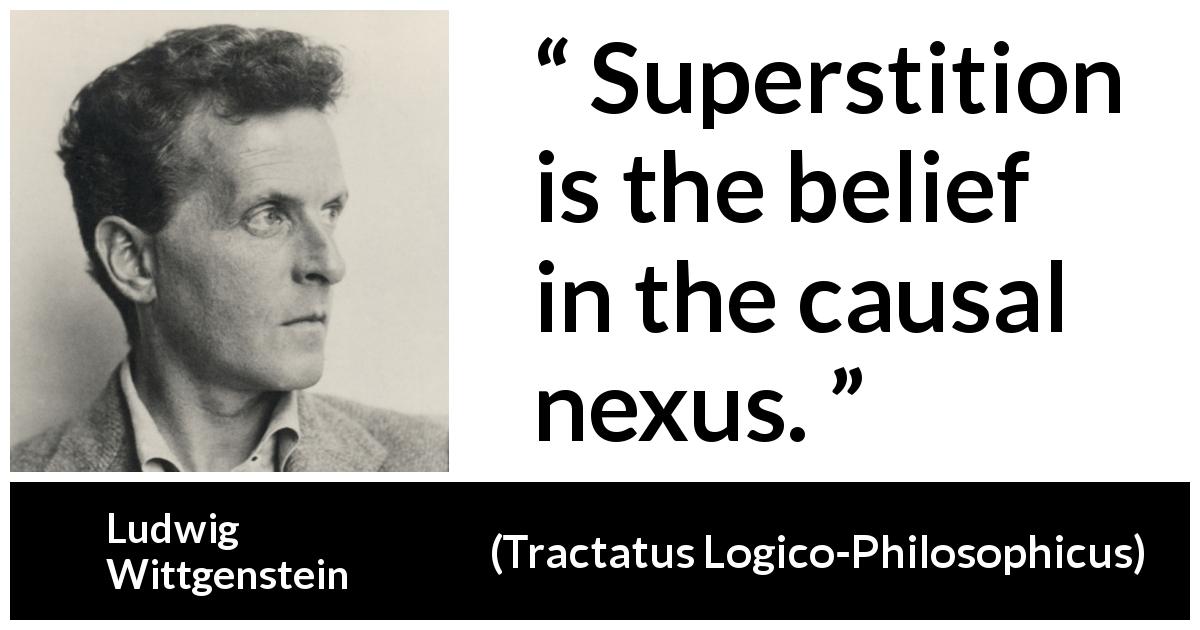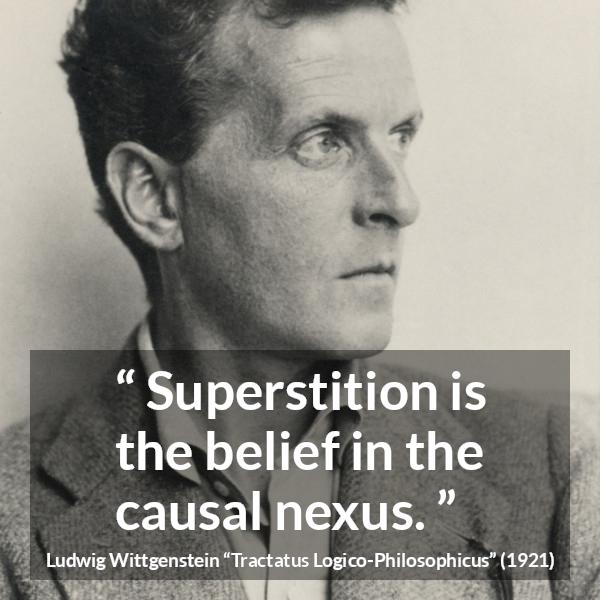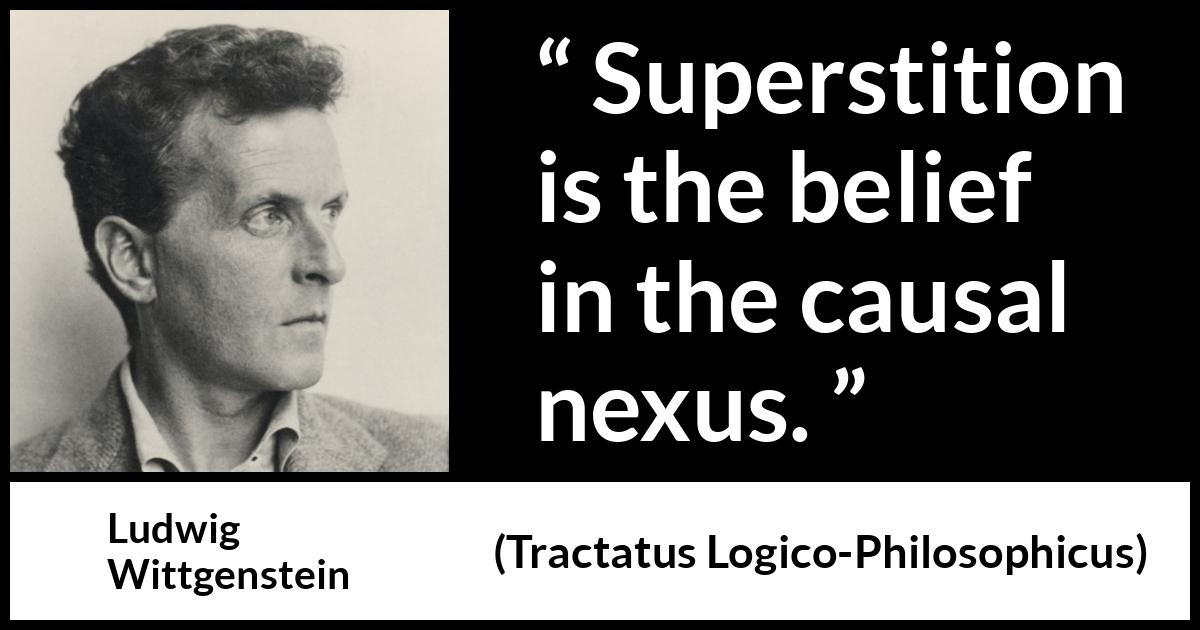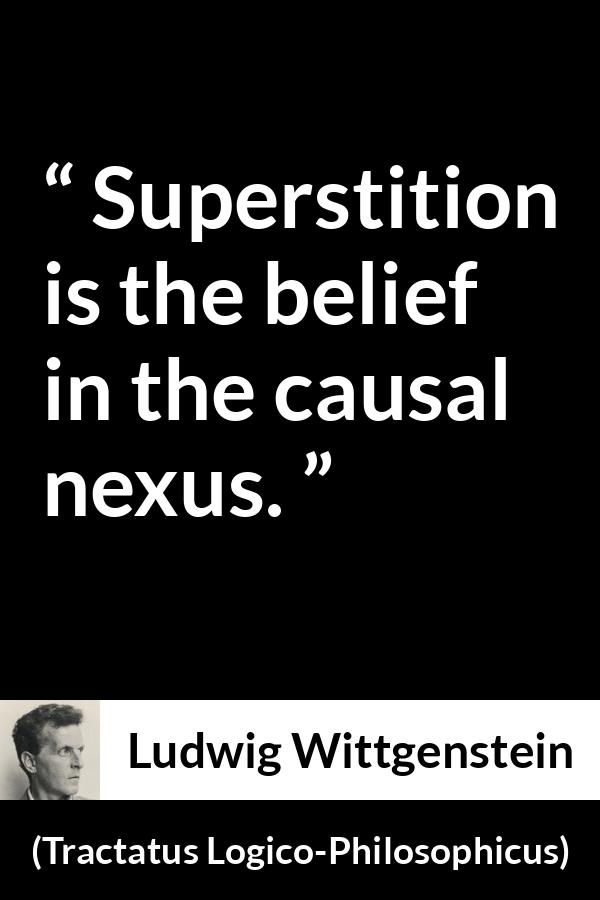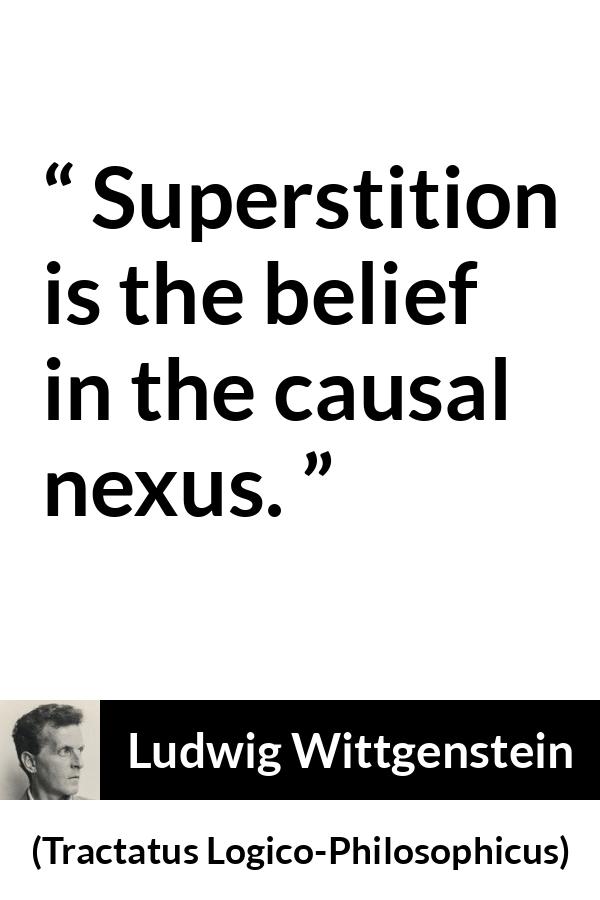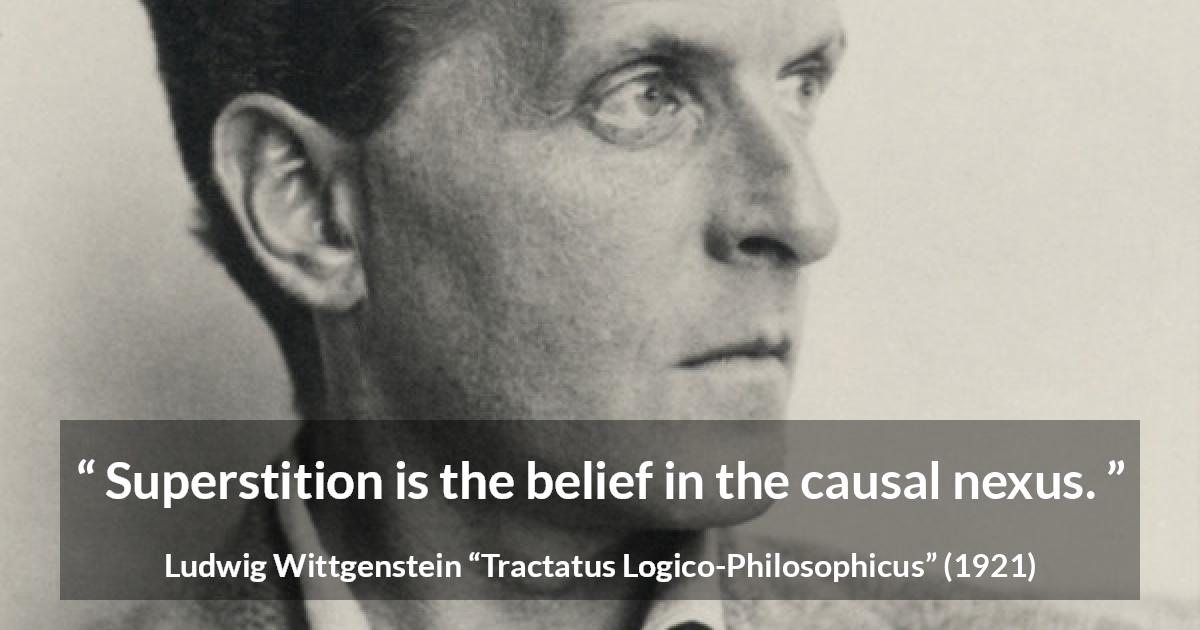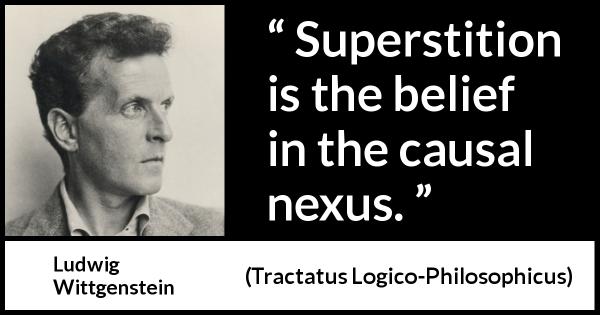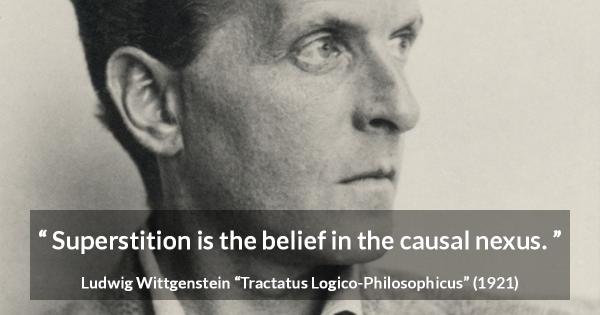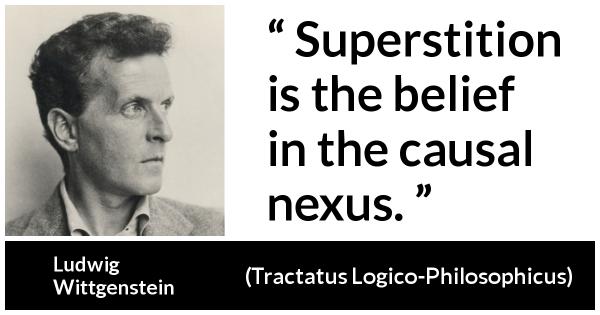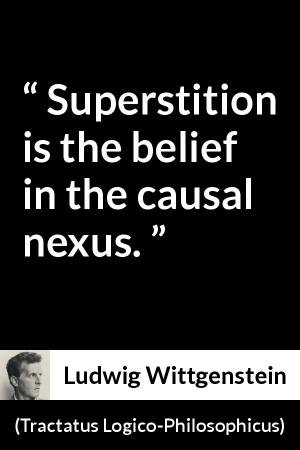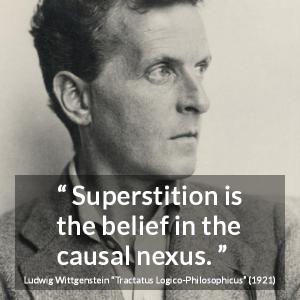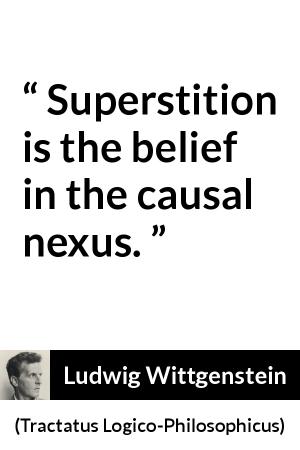“ Superstition is the belief in the causal nexus. ”
Ludwig Wittgenstein, Tractatus Logico-Philosophicus (1921). copy citation
| Author | Ludwig Wittgenstein |
|---|---|
| Source | Tractatus Logico-Philosophicus |
| Topic | belief causality superstition |
| Date | 1921 |
| Language | English |
| Reference | |
| Note | Translated by C. K. Ogden |
| Weblink | http://www.gutenberg.org/files/5740/5740-pdf.pdf |
Context
“In no way can an inference be made from the existence of one state of affairs to the existence of another entirely different from it.
5.136 OGD [→GER | →P/M] There is no causal nexus which justifies such an inference.
5.1361 OGD [→GER | →P/M] The events of the future cannot be inferred from those of the present.
Superstition is the belief in the causal nexus.
5.1362 OGD [→GER | →P/M] The freedom of the will consists in the fact that future actions cannot be known now. We could only know them if causality were an inner necessity, like that of logical deduction.—The connexion of knowledge and what is known is that of logical necessity.” source
5.136 OGD [→GER | →P/M] There is no causal nexus which justifies such an inference.
5.1361 OGD [→GER | →P/M] The events of the future cannot be inferred from those of the present.
Superstition is the belief in the causal nexus.
5.1362 OGD [→GER | →P/M] The freedom of the will consists in the fact that future actions cannot be known now. We could only know them if causality were an inner necessity, like that of logical deduction.—The connexion of knowledge and what is known is that of logical necessity.” source
